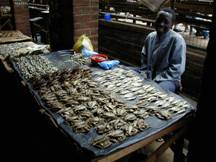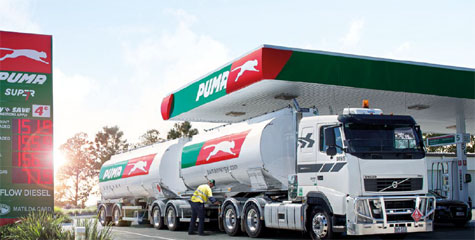Malawi’s Minister of Industry and Trade Joseph Mwanamvekha has disclosed that the country’s agro-based is losing about K20bn, equivalent to about US$50m, every year to illegal exports of crop produce.
According to the minister this is a worrisome trend for a country whose almost 80 percent of foreign exchange income is derived from agriculture as the amount being lost is enough to fund a full government department for a whole year.
According to the minister the problem has gone out of hand because most farmers are not aware of the existence of structured markets where they can sell their produce such as commodity exchanges.
Illegal exportation of agriculture produce is done in various ways including smuggling and failure by traders to remit tax on exports, the minister told reporters in Lilongwe when he toured Auction Holdings Limited Commodities Exchange trade house.
To try to curb the problem, Mr Mwanamvekha said the government has introduced a policy being implemented in liaison with the Reserve Bank and the Malawi Revenue Authority to stop renewal of export licenses for traders that do not produce evidence of that they remitted to the country the foreign currency earned from their previous agriculture commodity exports.
“We’re concerned about this and we are doing something about it. Most these traders buy produce from farmers direct from the field. So we have made it a point that any trader seeking renewal of their export licenses must produce evidence of their previous foreign exchange earnings remitted to the country”.
On another note, the minister expressed concern that vendors and middlemen are taking advantage of the ignorance of the farmers to buy from them at incredibly low prices and sell the same produce outside the country or at some formal markets at high prices.
“I will give you an example at the time of harvest farmers were getting an average of K 70 to K 100 for soya, but now the same crop is fetching up to K 500 at the commodity exchange. So you can actually see that the farmer who is producing the soya is getting very little.”
Mwanamveka said the government will embark on a national campaign to sensitize farmers on the need sell their produce through formal markets.
“We want to ensure that we give the farmer all the relevant information on prices for their produce. For pigeon pea, soya, all other products, they should be able to know what the price in Malawi is; the average price in the region and even beyond. By so doing they will be able to negotiate better.”




